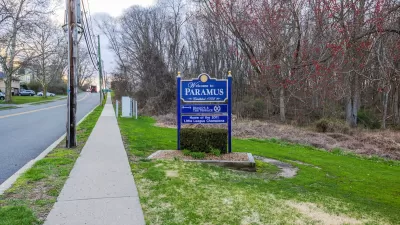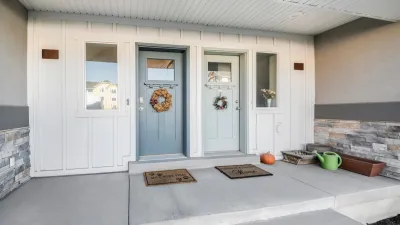A long-standing tradition of opposing multifamily housing construction continues to hamper housing production even as demand for affordable options grows.

Pointing to a recent example from Shawnee, Kansas, which recently banned “co-living”—as defined by four or more unrelated adults living together—in response to the growth of companies that convert single-family homes into multi-tenant rentals, Danielle McLean comments that “Municipal zoning regulations that restrict the number of unrelated adults living in a single unit are common across the U.S.” This poses a problem, McLean writes, as the housing market grows increasingly unaffordable.
While cities defend these restrictive regulations as a way to prevent “corporate landlords buying up housing and turning it into unaffordable rentals,” housing experts criticize them “for blocking the development of housing, particularly new affordable housing options.”
New development often faces opposition from multiple fronts: while some homeowners worry about property values and neighborhood character, housing advocates express concerns about gentrification and displacement. McLean describes the “time-honored tradition” of opposition to multifamily housing, which often strangles housing production and exacerbates the affordability crisis, as well as recent efforts by states such as Massachusetts and California to fight this “aversion to change” by mandating less restrictive zoning and land use policies.
Meanwhile, experts repeatedly remind policymakers that to have a significant impact on housing production, eliminating single-family zoning restrictions is just “part of a broader suite of changes that eliminate other restrictions such as setback and building height requirements and parking limits.”
FULL STORY: The ‘time-honored tradition’ of opposing affordable multifamily housing in US cities

Planetizen Federal Action Tracker
A weekly monitor of how Trump’s orders and actions are impacting planners and planning in America.

Restaurant Patios Were a Pandemic Win — Why Were They so Hard to Keep?
Social distancing requirements and changes in travel patterns prompted cities to pilot new uses for street and sidewalk space. Then it got complicated.

Maui's Vacation Rental Debate Turns Ugly
Verbal attacks, misinformation campaigns and fistfights plague a high-stakes debate to convert thousands of vacation rentals into long-term housing.

In California Battle of Housing vs. Environment, Housing Just Won
A new state law significantly limits the power of CEQA, an environmental review law that served as a powerful tool for blocking new development.

Boulder Eliminates Parking Minimums Citywide
Officials estimate the cost of building a single underground parking space at up to $100,000.

Orange County, Florida Adopts Largest US “Sprawl Repair” Code
The ‘Orange Code’ seeks to rectify decades of sprawl-inducing, car-oriented development.
Urban Design for Planners 1: Software Tools
This six-course series explores essential urban design concepts using open source software and equips planners with the tools they need to participate fully in the urban design process.
Planning for Universal Design
Learn the tools for implementing Universal Design in planning regulations.
Heyer Gruel & Associates PA
JM Goldson LLC
Custer County Colorado
City of Camden Redevelopment Agency
City of Astoria
Transportation Research & Education Center (TREC) at Portland State University
Camden Redevelopment Agency
City of Claremont
Municipality of Princeton (NJ)





























